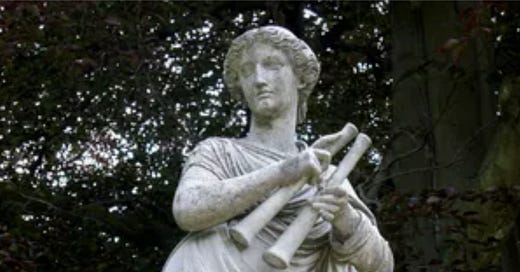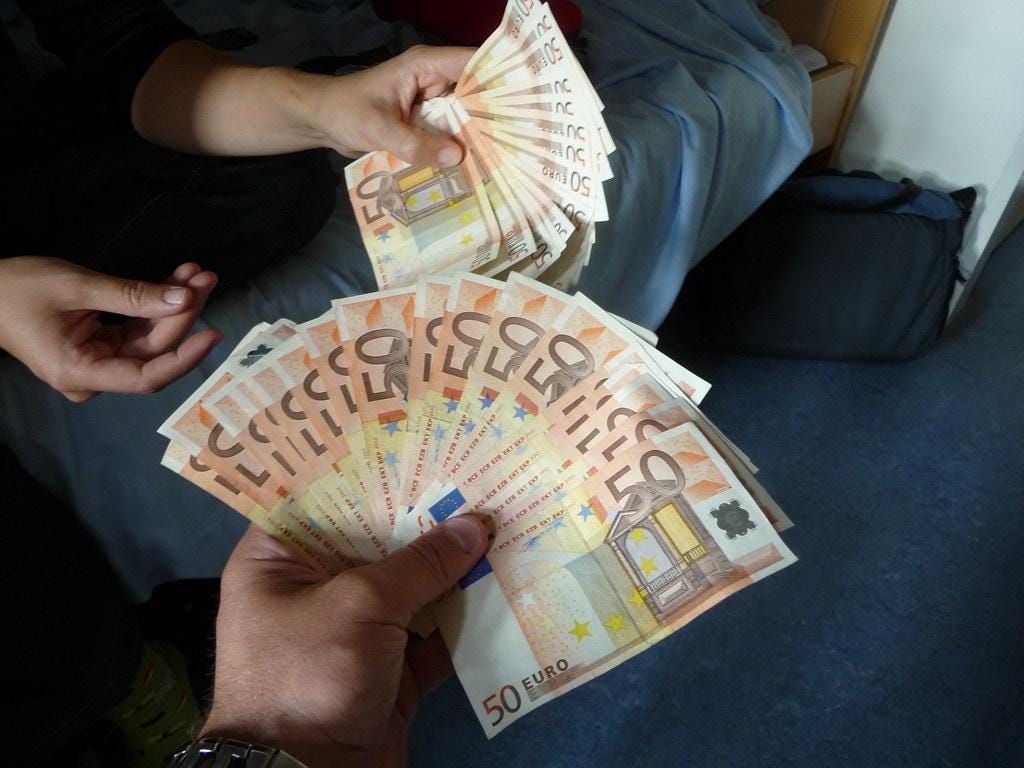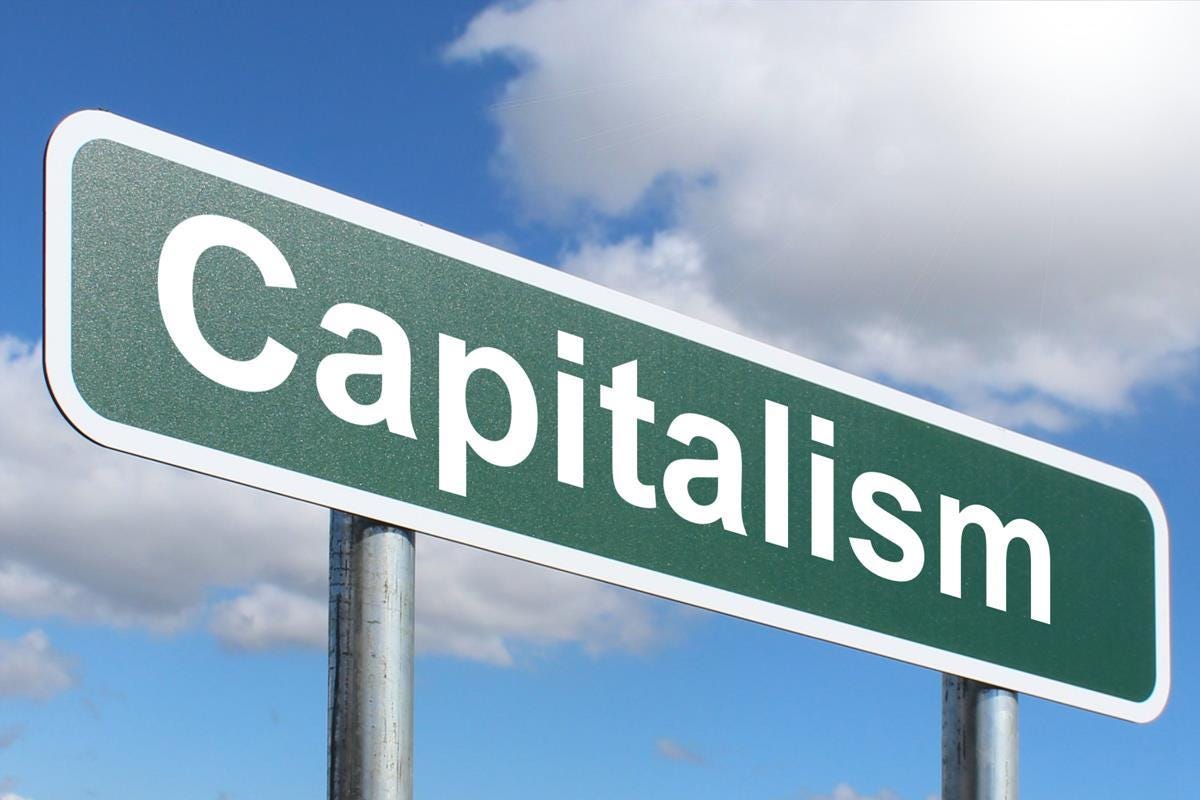This is a repost of an earlier article that very few read due to my low subscriber count at that time. It is the third and final part of my series regarding music streaming services. The first two articles, ‘Should Musicians Boycott Spotify’ and ‘Why I am Boycotting Spotify’ are available to read now on my Substack.
After I first started posting about the ‘Spotify’ controversy, I had a very interesting week indeed. An innocuous Facebook comment on a musician's post pertaining Spotify prompted two SubStack articles, a 200% increase in audience engagement on my social pages, countless conversations and the equivalent of a shift or two in lost sleep.
In the first of these SubStack articles ‘Should Musicians Boycott Spotify?’, I covered why I think Spotify operates under an unethical business model in terms of royalty payments and the exploitation of creative artists. The second one ‘Why I am Boycotting Spotify’, outlined my plan to use SubStack to distribute my own music and gave my reasons for why I have devised this plan, as well as some evidence for it being a viable option.
But the viability of this model as an option is, if I’m completely honest, tenuous at best. I’m still attempting it as a protest to the industry status quo and I hope to encourage others to do the same. The pipe dream would be to create an exodus of musicians from the big streaming giants. Reaching a critical mass of talent (or ‘content creators’, blergh!!!) leaving the streaming services and voting with their wallets might force these sites to reconsider their business models and thus usher in a new era of ethical streaming.
But I am by no means an idealist thinker. In fact, I am a cynic and do not believe this artist friendly utopia will ever happen in reality. People are simply too accustomed to having every song they can think of readily available at the touch of a ‘telescreen’. Sorry! I meant Smartphone! (Freudian slip).
Also, as one Facebook commenter pointed out to me; (he couldn’t have known that not only had I already had the same thought but I had been losing sleep labouring the very same point for weeks) nobody would pay monthly to subscribe to each and every artist that they wished to listen to. I wouldn’t, in fact, so why should I expect anyone else to. I might subscribe to a few who I am an AVID fan of in this scenario; Damien Rice, Regina Spector, Bo Burnham, etc; but I would not be able to afford to pay subscriptions to all the thousands of artists I have enjoyed through my lifespan. It isn’t feasible.
So why (I hear you ask) am I still planning on embarking on this doomed endeavour.
Well, firstly because my music is very niche and my fans are basically people who REALLY like Damien Rice, prefer music that makes them melancholy (depressed, more like) and attend the kind of folk gigs where you get shushed if you start talking during a song. Not really gonna be putting out Taylor Swift numbers here, so cultivating a small but loyal audience is my prerogative.
The SubStack idea also works for me because I want full creative control and autonomy over my work and the freedom to express my heterodox, centrist views without fear of being ‘deplatformed’ or ‘cancelled’ like
and were. The agendas of radically progressive ideologues plague the more artist friendly services like BandCamp and I refuse to artistically censor myself in any way. I have to have the ability to offend whoever I want in my art. For me that’s what art is for. Pushing boundaries and commenting on the world as you see it. SubStack prides itself on being a place where its user’s right to free speech and expression are always upheld and that is why I chose it.Another reason I will stick with this plan is my belief that there will be a counterculture movement in the not too distant future that craves ‘real human music’ made by ‘real human beings' in response to AI music. If you want to read more on this particular bone-headed theory of mine then read my recent article ‘The Lure of the Real’ where I explain it at length.
But this won’t work for every musician and certainly wouldn’t be a viable option for society at large. They still need their instant music for (essentially) free, everywhere they go.
So what IS the answer?
Well, I have that covered (in theory) too. Ready for my genius idea for replacing music streaming services? Okay... here it is… A streaming service! Yep! Clever, eh?
Seriously though, I mean an ethical streaming service. One that pays out a set rate for EVERY stream, and not just after a 1000 stream threshold. I can explain why I think this will work but it is going to involve a bit of maths (Yes, I spell it with an ‘s’. British, remember).
Right, it's gonna get nerdy up in here but stick with me. As I discussed in my last article, the maximum payout rate for a single stream on Spotify is $0.003. If any streaming service devised a system that paid out 0.3 cent per stream, that would equate to a 100 times increase in revenue for the artists. If this same service could charge 1 cent per stream, it could hypothetically pay the artist 0.6 cent per stream (200 times Spotify’s maximum rate) and still keep 0.4 cents per stream (40% of the revenue).
I would not charge a whole penny per stream though, instead, I would charge half that. At a half penny or 0.5 cent per stream, the service could retain that same 40% cut (0.2 cent per stream) for themselves and STILL pay the artist the 100 times what they would receive from Spotify, the other 0.3 cent per stream.
Let’s look at what this would look like using a real world example.
In 2023, Taylor Swift reportedly had 26.1 billion song streams. At the maximum rate (which if she’s not on, who the Hell is?) for streams on that platform (0.003 cent per stream) Swift would have been paid $78,300,000 (78 million, 3 hundred thousand US dollars).
A lot of money indeed. But what would she have gotten for the same streams under the pricing tier of a 2 thirds share of a 0.5 cents per stream rate in my proposed system? Well I said it would be 100 times right? So that would mean 7,830,000,000 right? Correct. She would have made 7.8 billion dollars in 2023 from her song being streamed on that platform if they operated this way.
Nearly EIGHT… BILLION… FUCKING… DOLLARS!!!! Jesus H Christ that is a lot of money, even to Taylor Swift.
And the service would still do well itself too from its 40% share. Their rate of a 0.2 cent from each stream would have earned them 5,220,000,000 from Swift’s 2023 Spotify streaming numbers. Nearly five and a quarter billion dollars from just one artist, who admittedly is one of if not the biggest artists in the world, but still she is just one act all the same. Add the streaming numbers from Ed Sheeran, The Weeknd, Drake, Dua Lipa, Lady Gaga, etc, etc, etc, (you get the point). Slim Shady is back too!
Spotify reportedly generated a profit of 13.2 billion euros (Great! A third currency) in 2023, a total that would only require 3 artists of Taylor Swift’s popularity to generate based on my system. And they have a lot more than three megastar artists on their platform.
Not to mention that the smaller artists would make exactly the same rate for EACH AND EVERY STREAM they get. They may only get 5 in the month but it would be at the same rate as the biggest artists in the world giving them the opportunity to earn as they build (not to mention incentivising them to do so).
‘But, hold up’, I hear you cry. ‘Nobody’s gonna pay half a penny EVERY TIME they listen to a song, right’? Correct, they wouldn’t. But they don’t pay every time they listen on Spotify either, do they? They pay a subscription: £11.99 pcm in the United Kingdom (Did I mention I am British?).
I propose a token purchasing system, whereby the user would ‘credit’ their account with however much money they want monthly, the same kind of transaction they are used to and readily accept already from the streaming service model. They could ‘top up’ manually whenever they want pay as you go style and credits would not expire but rather would rollover and remain on the account until they are used.
The £11.99 monthly Spotify charge would give the user 2398 song plays a month (1199 divided by 0.5). If we take the arbitrary time of 3 and a half minutes as an average song length, that's 8,393 minutes or nearly 140 hours of music. (That’s like 3 whole TOOL songs or listening to half of ‘November Rain’).
So for the same price per month as Spotify, you could listen to a full SIX DAYS of music and be contributing 100 times as much to the artists in compensation for the entertainment (a low resolution term for the sake of clarity) they provide. All for half a penny per stream. Nobody would use all this time up so the subscription fee (or pay as you go payment) would not need to be as steep as £11.99 pcm realistically. £5 per month would give a user the opportunity to listen to 1000 songs, for example.
[Sidebar] I know some will accuse me of advocating for a Socialised approach to music streaming but they would be wrong in that assessment. It is capitalistic, meritocratic (a blasphemous word these days) and fair. In no sense am I suggesting a redistribution of wealth or the manufacturing of a communist style ‘equality of outcomes’ system. All I’m suggesting is setting a ‘gold standard’ rate for the trading of songs in the music streaming economy, an established exchange rate that all parties involved trade at, and letting capitalism take over. A single unit of currency, such as the dollar let’s say, has the same trade value regardless of who is holding it. The homeless man and the billionaire alike can purchase the same amount of goods with it, the same amount of apples, petroleum or whatever.
There is still the chance in this musical system for high achievers to become megastars and climb the rungs of the industry ladder. The cream will still rise to the top and you would continue to live and die by your marketing and entrepreneurship skills (and the quality of your music of course). The biggest artists would continue to make millions and the smaller artists would still have to fight to promote their music and build their fandoms just as they always have. However under this system they would have a chance to earn 100 times what they do currently from their audiences while they do. And the price of ‘gold’ of which success is measured against would remain consistent across all parties. One’s monetary success would be tied to how well you can sell your music and gain plays. It’s Capitalism, not Socialism. [End Sidebar]
So why hasn’t this happened already? Why isn’t this the way things are done? Well, because my system isn’t utopian and perfect for everyone. My system would work based on an average subscription charge of £5, less than half what Spotify charges their paid subscribers. They'd probably lose a lot of money unless, (as I suspect) the much cheaper tariff entices a much higher percentage of the free users to opt in to the paid model. In fact, I would not offer a free version with ads at all, but rather allow users to sign up and create a new account with a minimum start of 1 standard currency unit (£1, $1, €1,etc) for 200 songs. All music is paid for, always.
But the billionaires are not going to implement this system or any like it. They would never in their right mind take the risk, nor would they ever be incentivized to do so given the current status quo they enjoy; millions upon millions of artists lining up around the block, desperate for the honour of having their music distributed for FREE.
It would take a big artist with a personal stake in this world to come in and disrupt the whole system and enforce a change through corporate competition like Elon Musk (love him or hate him) did when he bought Twitter (X). We would need some big names to go all in on something like my plan (or a better one drawn up by someone who isn’t a complete idiot), and use their pull and their built in fan bases to draw subscribers away from the established platforms. Hit them where it hurts, their wallets.
It probably won’t happen, but I hope it does. Just one huge artist saying NO to the $0.003 per stream rates and starting their own ethical system of music streaming is all it would take. Taylor, where’re you at, girl?
Thank you for reading
Pete Brennan - The Common Centrist
[Edit] After publishing this piece I continued my research and discovered that I am not the first person to have an idea like this. This is hardly surprising and to be honest I expected that something as high profile as this would have lots of instances of ‘parallel thinking’. It is an oversight on my part that I did not research deep enough into it before publishing. I was concerned with the mathematical and theoretical sides and thus neglected to delve deep enough into the practical and historical side.
Since 2020, the Union Of Musicians (UMAW) organisation have been campaigning and gathering support with an aim to reform the streaming side of the music industry into something more ‘equitable and just’. Their campaigns ‘Make Streaming Pay’ and ‘Justice for Spotify’ call for the establishment of a ‘1 cent’ per stream royalties structure. I have since signed their petition and you can too here: weareumaw.org or follow their X page.


















Added my name to the petition and shared it. Thanks!